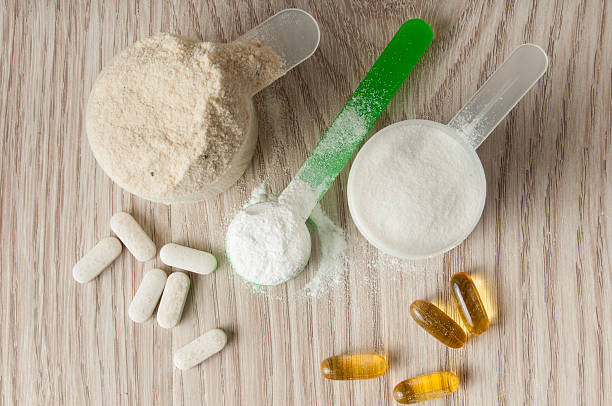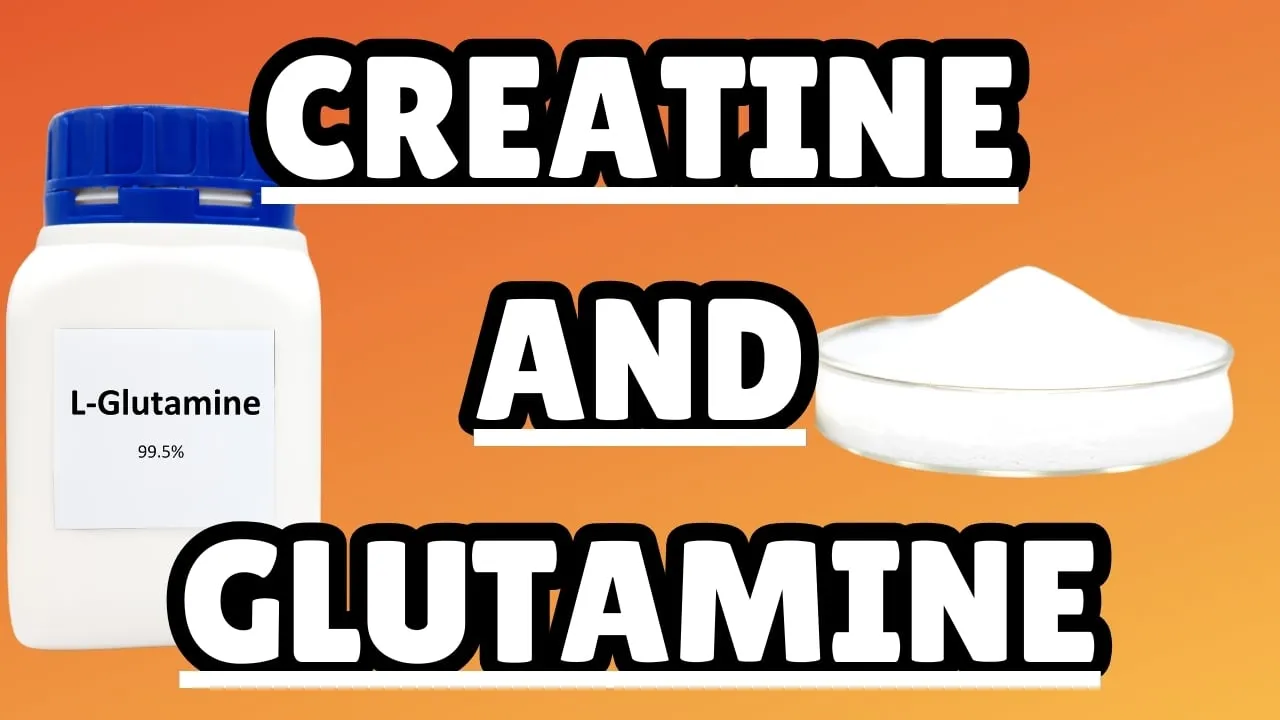Creatine and Glutamine Supplement: Enhance Muscle Recovery with Creatine Monohydrate
Creatine and Glutamine: The Dynamic Duo for Muscle Recovery and Performance
Creatine and glutamine are two of the most widely used supplements in sports nutrition.
These compounds are renowned for their ability to support muscle strength, recovery, and endurance.
This article explores the benefits, usage, and science behind creatine and glutamine, providing everything you need to maximize your performance.
Why This Article Is Worth Reading
Whether you're an athlete looking to improve recovery, a bodybuilder aiming for lean muscle growth, or someone new to supplements, understanding the effects of creatine and glutamine is essential.
This article simplifies the science behind these supplements and explains how they can help you achieve your fitness goals.

Outline
- What Are Creatine and Glutamine?
- How Do Creatine and Glutamine Work in the Body?
- The Benefits of Creatine for Muscle Strength and Endurance
- Glutamine and Its Role in Muscle Recovery
- Should You Combine Creatine and Glutamine?
- The Best Dosage of Creatine and Glutamine
- How to Take Creatine and Glutamine Supplements
- Unflavored vs. Flavored Supplements: Which Is Better?
- Creatine Monohydrate vs. Other Types of Creatine
- Potential Side Effects and Precautions for Creatine and Glutamine
1. What Are Creatine and Glutamine?
Creatine is a compound found naturally in the body, primarily in skeletal muscle. It helps produce energy during high-intensity exercise by replenishing ATP stores.
Glutamine, an amino acid, supports immune function and plays a role in muscle recovery. Both are popular nutritional supplements for athletes.

2. How Do Creatine and Glutamine Work in the Body?
Creatine improves energy production during short-term, high-intensity activities, enhancing anaerobic performance.
Glutamine aids in muscle recovery by reducing muscle breakdown and supporting immune health.
Together, these compounds work synergistically to support muscle strength and recovery.
3. The Benefits of Creatine for Muscle Strength and Endurance
Creatine supplementation enhances muscle strength, lean muscle mass, and body composition.
Studies show that creatine is especially effective during resistance training and high-intensity exercises. It supports muscle recovery and improves endurance in athletes.
For more detailed insights, check out Creatine Recovery.

4. Glutamine and Its Role in Muscle Recovery
Glutamine supplementation is key for reducing muscle soreness and promoting faster recovery after exercise.
It supports skeletal muscle repair and helps athletes recover from intense training sessions. Glutamine is especially beneficial for endurance athletes.
5. Should You Combine Creatine and Glutamine?
Combining creatine and glutamine can maximize benefits. Together, they improve recovery, muscle strength, and immune support.
While each supplement works differently, using both can enhance overall performance.

6. The Best Dosage of Creatine and Glutamine
The ideal dose for creatine is 5 grams per day, while glutamine is typically taken in 5-10 grams per day.
For optimal results, athletes should follow supplementation protocols that match their specific fitness goals.
7. How to Take Creatine and Glutamine Supplements
Creatine and glutamine are available in powdered and capsule forms. Most athletes prefer powdered options for better absorption.
They can be mixed with water or a post-workout shake.
Take creatine after exercise to support recovery and glutamine before bed for immune health.

8. Unflavored vs. Flavored Supplements: Which Is Better?
Unflavored creatine and glutamine supplements are versatile and can be added to any drink.
Flavored options may contain added sugars, which some athletes avoid. Choose unflavored options if you prefer flexibility in your supplementation.
9. Creatine Monohydrate vs. Other Types of Creatine
Creatine monohydrate is the most researched and widely used form of creatine. It offers excellent absorption and effectiveness for improving body composition and muscle strength.
Creatine HCL is another option for those who prefer a smaller serving size.
10. Potential Side Effects and Precautions
Both supplements are generally safe when taken in recommended doses. Some people may experience mild digestive discomfort.
For more information, read about Creatine Side Effects.
Always consult a nutritionist or healthcare professional before starting a new supplement.

Key Takeaways
- Creatine supports energy production, muscle strength, and endurance.
- Glutamine aids in muscle recovery and immune health.
- Combining creatine and glutamine can maximize recovery and performance.
- The recommended dose is 5 grams of creatine and 5-10 grams of glutamine per day.
- Choose unflavored supplements for flexibility and fewer additives.
- Creatine monohydrate is the most effective and widely used form of creatine.
For athletes aiming to improve muscle recovery and performance, creatine and glutamine are essential additions to a well-rounded supplementation routine.
References
- Candow, Darren G., and Philip D. Chilibeck. "Timing of Creatine Supplementation and Resistance Training: A Brief Review." Journal of the International Society of Sports Nutrition, vol. 17, 2020, pp. 1-8. https://jissn.biomedcentral.com/articles/10.1186/s12970-021-00412-w.
- Cruzat, Vinicius, et al. "Role of Glutamine in Exercise-Induced Immune Dysfunction." Frontiers in Physiology, vol. 11, 2020, pp. 1-8. https://www.frontiersin.org/articles/10.3389/fphys.2023.1172342/full.
- Kerksick, Chad M., et al. "International Society of Sports Nutrition Position Stand: Nutrient Timing." Journal of the International Society of Sports Nutrition, vol. 14, no. 1, 2017, pp. 1-21. https://jissn.biomedcentral.com/articles/10.1186/s12970-021-00412-w.
- Moura, Bianca M., et al. "The Effects of Glutamine and Creatine Supplementation on Physical Performance in Military Police Officers: A Randomized, Double-Blind, Placebo-Controlled Trial." Journal of the International Society of Sports Nutrition, vol. 12, 2015, pp. 1-7. https://pmc.ncbi.nlm.nih.gov/articles/PMC4332172/.
- Rogero, Marcelo M., et al. "Glutamine Supplementation Improves Strength Performance and Reduces Muscle Damage in Resistance-Trained Men." Frontiers in Physiology, vol. 10, 2019, pp. 1-9. https://pmc.ncbi.nlm.nih.gov/articles/PMC6520936/.
For More Training Advice + Diet and Lifestyle visit us Combat Creatine
PS: Make sure you check out the rest of our Creatine Guides:
Creatine
Can You Take Creatine Without Working Out
What to Mix Creatine WithThe Effects Creatine Monohydrate on High Blood PressureCan You Take Creatine While Breastfeeding












